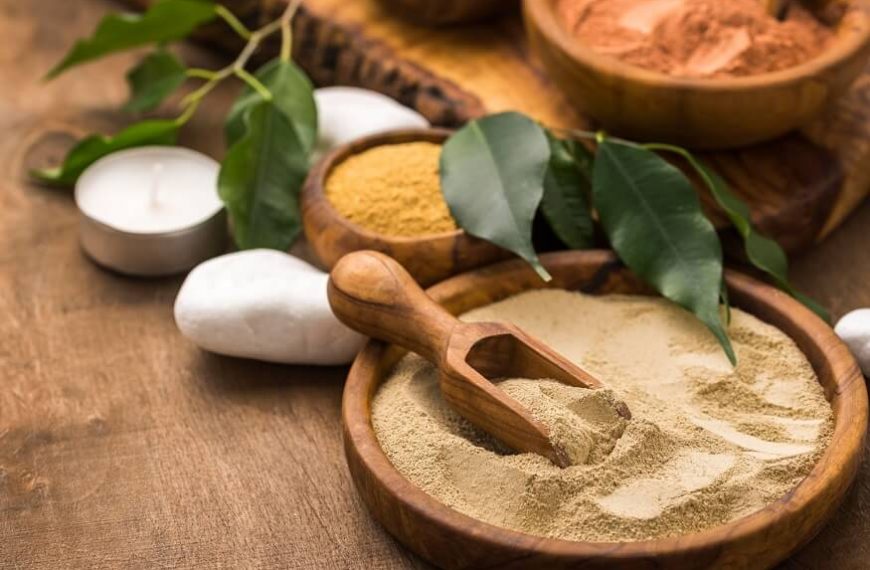Ancient Indian Medicine Discover
Did you know that the WHO (World Health Organization) recognises Ayurveda as the world’s oldest all-encompassing healthcare system?
India truly is a treasure trove of many wonderful things. Things that we have been pioneers, inventors and discoverers of. Be it the applied sciences of mathematics and astronomy or the wellness sciences of Yoga and Ayurveda! We have a lot to take pride in as Indians.
Speaking of Ayurveda though, it is in fact, a fascinating branch of science that focuses on the use of natural medicine to provide traditional healthcare that is both curative as well as preventative in nature.
In this blog, we will take you on a journey wherein you will get to know about the discovery of Ayurveda, its history and more. So let us begin!
The meaning of the term of Ayurveda
Before we lose ourselves in the origins of Ayurveda, let us break down the term for you and tell you what it means. You might find this to be really interesting!
The term Ayurveda is actually a combination of two words: Ayush which translates to life (and also longevity) and Veda which literally means knowledge. Combine the two and you Ayurveda or what can be translated as the knowledge of living a long and healthy life.
The discovery of Ayurveda
If we talk about the origins of Ayurveda, this ancient science was first discovered in circa 2nd century BCE. Though the practice of Ayurveda is as old as time and prevalent in India as well as in parts of the South-Asian subcontinent, the western world did not adopt it till the late 1970s and early 1980s. It was Maharishi Ayurveda and Baba Hari Dass who adapted it for western consumption, thus carving a name for Ayurveda on a global scale.
The history Ayurveda
Let us take a deeper dive now and explore the very history of Ayurveda. Part of the Vedic Age, Ayurveda as a concept can be traced back to the Atharvaveda, which contained poems that talked about curing ailments. In fact, Ayurveda as a science is also mentioned in Mahabharata!
If we take a look at all the lore concerning this healthcare system, we will find that the history of Ayurveda is contained in many legendary accounts. While Atharvaveda and Mahabharata, as mentioned above, are one of the stories, legend has it that the physician of the gods Dhanvantari received the divine knowledge of Ayurveda from Lord Brahma himself.
Another story mentions how the sage Agnivesha was the author of a lost text on Ayurveda. Truly, the lore of Ayurveda is just as interesting as the science itself!
The practice of Ayurveda: its essential principles
The practice of Ayurveda is based on the core belief that the psychological, physical and spiritual aspects of human existence play a cumulative role in healing any ailment that the body might suffer from. This science firmly believes that the human body is made up of the five elements that exist in nature, which are space, fire, earth, air and water.
Based on this ideology, Ayurveda mentions that the human body has three different types of predispositions or humours, which it terms as doshas. Doshas are essentially a combination of the elements mentioned above.
The balance of these doshas governs how well the body functions and the imbalance of them can lead to the occurrence of diseases. They have been defined below so you get a better idea:
- Vata
As per this ancient Indian medicine, vata can be defined as the confluence of the elements air and space. This dosha displays characteristics such as coldness, dryness, roughness, lightness, spaciousness and a flowing state. Just like the season of autumn. People who have vata as their dominant dosha are known to be energetic, slim and creative!
While being quick learners, multi-taskers and adaptable are their skills, people with a strong vata dosha will also possess certain negative traits. These can range from being forgetful and anxious to being highly insensitive with irregular diets and prone to digestive issues.
To bring back the balance in their bodies Ayurveda recommends following a fixed routine, which includes activities that can help manage stress levels and keep them to a minimum. It also recommends avoiding colder climates and living in warmer regions.
- Kapha
Kapha is a mix of the elements earth and water. Typical characteristics of this dosha include steadiness, stability, coldness, softness and slowness. Traits that you can find in the spring season, which is known as the kapha in Ayurveda.
Kapha dosha people are quite strong and caring and have a thick bone structure. They have the ability to stay calm and collected through trying situations, often emerging as the support system people rely on. All in all, they are empathetic, calm, patient, wise and cheerful with a healthy immune system.
But they have their own share of negatives as well. For example, they generally have a slow metabolism which can lead to weight gain. They might also be sluggish, sleep a lot and maybe susceptible to heart disease and depression. They generally require a lot of encouragement and motivation.
Ergo, Ayurveda suggests that for this with a strong kapha, regular exercise and a strict diet are a must. They must follow a regular sleep routine and maintain a warm body temperature to balance their doshas.
- Pitta
Fire and water are the two elements that make up the dosha known as pitta. Ones who have a dominant pitta dosha possess a very strong personality. This dosha is both hot and light while being sharp, mobile, liquidy and oily. The season that is associated with pitta is the season of summer.
As for their appearance, people with pitta dosha generally have a muscular build. They are athletic and do well taking up strong leadership roles in life. They are very goal-oriented. Being self-motivated is one of their strong suits, which also makes them highly competitive. They can sometimes be aggressive, which can put-off people.
They are also prone to impatience. You will often find them feeling hungry and going through mood swings. They are sensitive to heat and do not thrive in hotter climates.
To harmonise their doshas, Ayurveda recommends they stay in cooler climates, avoid hot and spicy foods and focus on maintaining a work-life balance so situations of conflict can be avoided.
So there you have it. An overview of the ancient Indian medicinal science that is Ayurveda. Ayurveda takes a very unique approach to healing, focusing on a holistic treatment plan. A lot like what we do at EuroKids, taking a unique approach to preschool teaching and focusing on the holistic development of your child. If you are interested in knowing more, make sure you visit us at any one of our centres.














